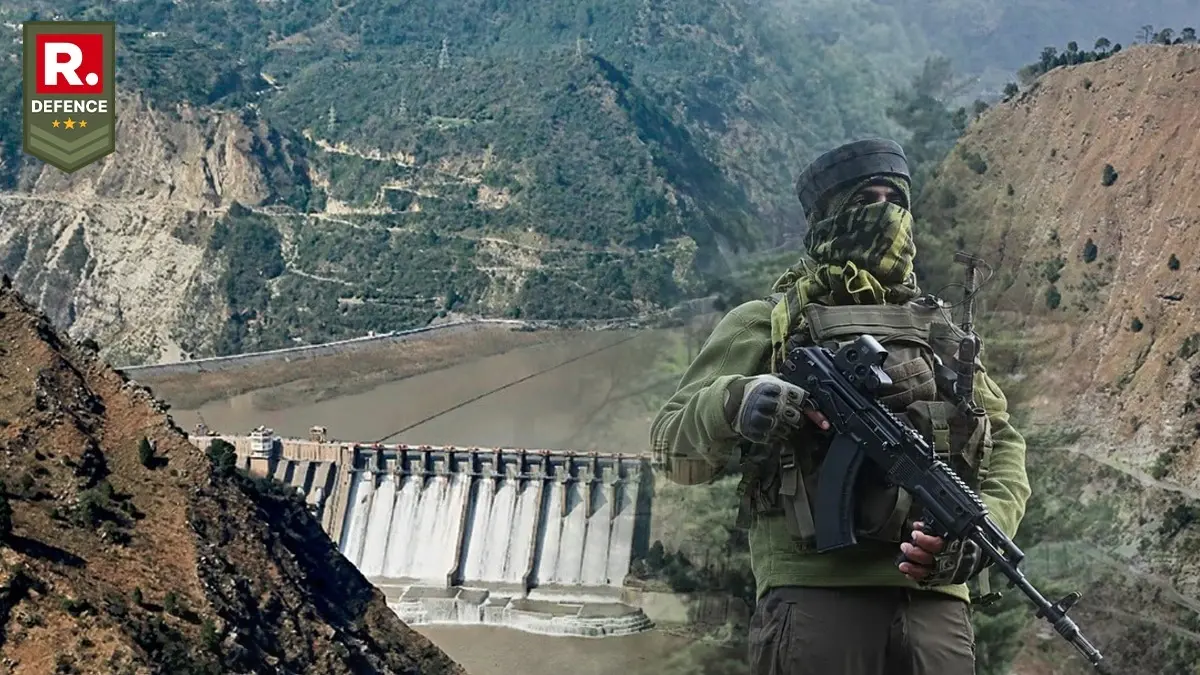Updated 10 May 2025 at 19:25 IST
Indus Water Treaty To Remain In Abeyance Amid India's Agreement To Ceasefire: MEA
India and Pakistan agree to ceasefire without pre or post-conditions, but Indus Water Treaty remains in abeyance due to Pakistan's alleged cross-border terrorism.
- India News
- 3 min read

New Delhi: India has agreed to Pakistan's ceasefire request, with Pakistan initiating the call for a cessation of hostilities after mighty Indian armed forces hammered the Pakistani military inflicting heavy damages to their assets. According to India's official sources, the agreement comes without any pre or post-conditions and the Indus Water Treaty will remain in abeyance. The ceasefire agreement is a welcome respite from the escalating tensions between India and Pakistan, which have been exchanging fire over the past few days, resulting in civilian deaths and infrastructure damage. The agreement is expected to bring much-needed relief to the people living along the border, who have been bearing the brunt of the conflict.
The ceasefire agreement between India and Pakistan has been holding firm under strict Indian terms. According to sources, there are no preconditions attached to the agreement, and the Indus Waters Treaty (IWT) remains in abeyance. The ceasefire was initiated by Pakistan's Director General of Military Operations (DGMO), and the engagement is entirely bilateral, with no role for third-party mediation or involvement.
Indus Water Treaty To Remain In Abeyance
Despite the ceasefire agreement, the Indus Water Treaty, a decades-old agreement governing the sharing of water resources between India and Pakistan, will remain in abeyance. MEA sources confirmed that India has informed Pakistan of its decision to keep the treaty in abeyance with immediate effect, citing sustained cross-border terrorism by Pakistan targeting Jammu and Kashmir as a major breach of the treaty conditions.
The Indus Water Treaty, brokered by the World Bank in 1960, has been a cornerstone of India-Pakistan relations, governing the use of the Indus River and its tributaries. However, India has accused Pakistan of violating the treaty's conditions by not responding to India's requests to enter into negotiations to modify the treaty.
Advertisement
The India-Pakistan relationship has been marked by periods of intense hostility, including several wars and numerous terrorist attacks. The recent ceasefire agreement is a major step towards reducing tensions, but the road ahead will be challenging. Notably India has agreed to a ceasefire deal on the term that any Act of Terrorism in future will be treated as an Act of War.
Visa Restrictions
Despite the ceasefire agreement, visa restrictions between India and Pakistan will not be rolled back. The restrictions have been in place for several years, and India has been cautious about relaxing them due to security concerns. The decision to maintain visa restrictions is seen as a reflection of India's firm stance on the issue.
Advertisement
India's Stance
India's Foreign Secretary Vikram Misri has stated that India will not reverse its decision on the Indus Water Treaty until Pakistan credibly ends its alleged cross-border terrorism. The Indian government has accused Pakistan of supporting terrorist groups that have carried out several deadly attacks in India.
The situation along the India-Pakistan border remains grim, with both countries having differing perspectives on the ceasefire agreement and the Indus Water Treaty. While the ceasefire agreement is a positive development, the future of the Indus Water Treaty remains uncertain.
Get Current Updates on India News, Entertainment News, Cricket News along with Latest News and Web Stories from India and around the world.
Published By : Abhishek Tiwari
Published On: 10 May 2025 at 19:22 IST
